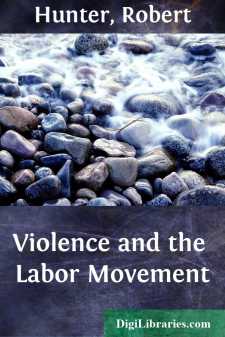Categories
- Antiques & Collectibles 13
- Architecture 36
- Art 48
- Bibles 22
- Biography & Autobiography 813
- Body, Mind & Spirit 142
- Business & Economics 28
- Children's Books 17
- Children's Fiction 14
- Computers 4
- Cooking 94
- Crafts & Hobbies 4
- Drama 346
- Education 46
- Family & Relationships 57
- Fiction 11829
- Games 19
- Gardening 17
- Health & Fitness 34
- History 1377
- House & Home 1
- Humor 147
- Juvenile Fiction 1873
- Juvenile Nonfiction 202
- Language Arts & Disciplines 88
- Law 16
- Literary Collections 686
- Literary Criticism 179
- Mathematics 13
- Medical 41
- Music 40
- Nature 179
- Non-Classifiable 1768
- Performing Arts 7
- Periodicals 1453
- Philosophy 64
- Photography 2
- Poetry 896
- Political Science 203
- Psychology 42
- Reference 154
- Religion 513
- Science 126
- Self-Help 84
- Social Science 81
- Sports & Recreation 34
- Study Aids 3
- Technology & Engineering 59
- Transportation 23
- Travel 463
- True Crime 29
Violence and the Labor Movement
by: Robert Hunter
Description:
Excerpt
PREFACE
This volume is the result of some studies that I felt impelled to make when, about three years ago, certain sections of the labor movement in the United States were discussing vehemently political action versus direct action. A number of causes combined to produce a serious and critical controversy. The Industrial Workers of the World were carrying on a lively agitation that later culminated in a series of spectacular strikes. With ideas and methods that were not only in opposition to those of the trade unions, but also to those of the socialist party, the new organization sought to displace the older organizations by what it called the "one Big Union." There were many in the older organizations who firmly believed in industrial unionism, and the dissensions which arose were not so much over that question as over the antagonistic character of the new movement and its advocacy here of the violent methods employed by the revolutionary section of the French unions. The most forceful and active spokesman of these methods was Mr. William D. Haywood, and, largely as a result of his agitation, la grève générale and le sabotage became the subjects of the hour in labor and socialist circles. In 1911 Mr. Haywood and Mr. Frank Bohn published a booklet, entitled Industrial Socialism, in which they urged that the worker should "use any weapon which will win his fight." They declared that, as "the present laws of property are made by and for the capitalists, the workers should not hesitate to break them."
The advocacy of such doctrines alarmed the older socialists, who were familiar with the many disasters that had overtaken the labor movement in its earlier days, and nearly all of them assailed the direct actionists. Mr. Eugene V. Debs, Mr. Victor L. Berger, Mr. John Spargo, Mr. Morris Hillquit, and many others, less well known, combated "the new methods" in vigorous language. Mr. Hillquit dealt with the question in a manner that immediately awakened the attention of every active socialist. Condemning without reserve every resort to lawbreaking and violence, and insisting that both were "ethically unjustifiable and tactically suicidal," Mr. Hillquit pointed out that whenever any group or section of the labor movement "has embarked upon a policy of 'breaking the law' or using 'any weapons which will win the fight,' whether such policy was styled 'terrorism,' 'propaganda of the deed,' 'direct action,' 'sabotage,' or 'anarchism,' it has invariably served to demoralize and destroy the movement, by attracting to it professional criminals, infesting it with spies, leading the workers to needless and senseless slaughter, and ultimately engendering a spirit of disgust and reaction. It was this advocacy of 'lawbreaking' which Marx and Engels fought so severely in the International and which finally led to the disruption of the first great international parliament of labor, and the socialist party of every country in the civilized world has since uniformly and emphatically rejected that policy."
There could be no better introduction to the present volume than these words of Mr....


